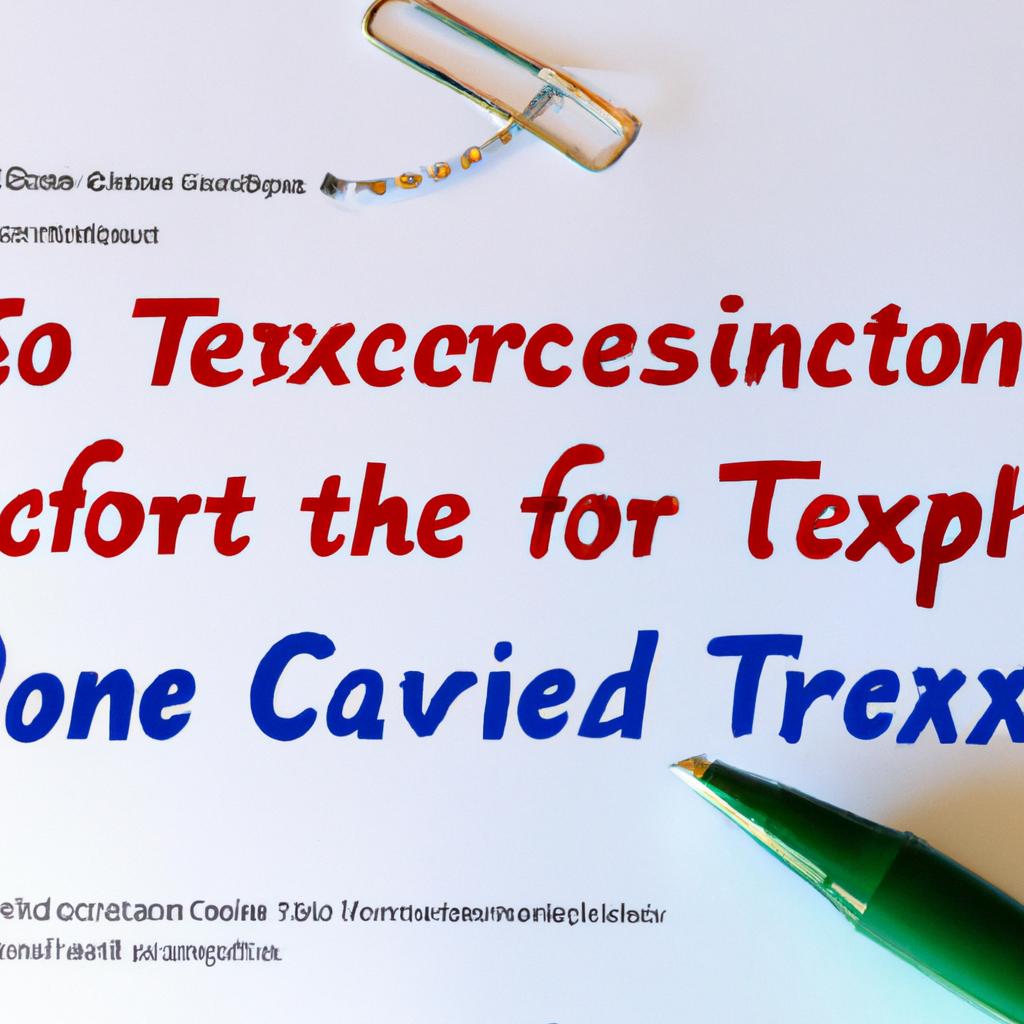When it comes to estate planning strategies, individuals often seek ways to minimize their tax liability and simplify the transfer of assets to their loved ones. One common question that may arise is whether putting a house in a child’s name can be an effective method for avoiding inheritance tax. In this article, we will explore the intricacies of this approach and provide insights into the potential legal implications. As experienced lawyers specializing in estate planning at Morgan Legal Group in New York City, we aim to offer clear and comprehensive guidance on this complex topic.
Exploring the Option of Transferring Ownership to Children for Tax Purposes
Transferring ownership of your property to your children can be a strategic move to potentially avoid hefty inheritance taxes. By placing the property in their names, you could mitigate tax liabilities and ensure a smoother transfer of assets upon your passing. However, it is essential to consider the implications and potential drawbacks before proceeding with this decision.
When contemplating transferring ownership to your children for tax purposes, it is crucial to consult with a knowledgeable estate planning attorney. They can provide guidance on the most tax-efficient ways to transfer ownership and ensure that all legal requirements are met. Additionally, discussing the implications of such a decision with your children and understanding their financial situations can help avoid any misunderstandings or complications down the line.

Understanding the Implications of Gifting Your Property to Avoid Inheritance Tax
When considering transferring your property to your children to avoid inheritance tax, it is crucial to understand the legal and financial implications of such a decision. While gifting your property may seem like a straightforward solution to reduce the tax burden on your estate, there are several factors to consider before making this decision.
One important consideration is the potential consequences of transferring ownership of your property to your children, including:
- Loss of control: Transferring ownership means you no longer have control over the property, and your children may make decisions that are not aligned with your wishes.
- Capital gains tax: Gifting the property may trigger capital gains tax consequences for your children when they decide to sell the property in the future.
- Medicaid eligibility: Transferring the property may impact your eligibility for Medicaid benefits, as it could be considered a disqualifying transfer.

Considerations Before Proceeding with Transferring Property Ownership to Children
When considering transferring property ownership to your children as a strategy to avoid inheritance tax, it is crucial to take into account several important considerations. One of the main factors to keep in mind is that transferring property ownership may have significant legal and financial implications for both you and your children. It is essential to fully understand the potential consequences before proceeding with such a decision.
Furthermore, it is important to consult with a knowledgeable estate planning attorney to ensure that the transfer of property ownership is done correctly and in compliance with all relevant laws and regulations. An experienced attorney can provide valuable guidance on the best course of action based on your specific circumstances. Additionally, it is advisable to consider alternative estate planning strategies that may achieve your desired goals without the potential drawbacks of transferring property ownership.

Consulting with Estate Planning Professionals for Expert Guidance
When it comes to estate planning, it is crucial to consult with professionals who can provide expert guidance on the best strategies to protect your assets and minimize taxes. One common question that individuals often ask is whether they can transfer their house to their children’s name to avoid inheritance tax. While this may seem like a straightforward solution, there are several factors to consider before making such a decision.
First and foremost, transferring your house to your children’s name can have significant implications on your tax liability. In most cases, this transfer may be considered a gift, which could trigger gift tax implications. Additionally, if the value of the house exceeds the annual gift tax exclusion amount, you may be required to pay taxes on the transfer. Consulting with an estate planning professional can help you assess the potential tax consequences of transferring your house to your children and explore alternative strategies to achieve your estate planning goals.
Q&A
Q: Can I avoid inheritance tax by putting my house in my children’s name?
A: While it may seem like a logical solution, transferring your house to your children’s name solely to avoid inheritance tax may not be as straightforward as it seems.
Q: What is inheritance tax and how does it affect me?
A: Inheritance tax is a tax on the transfer of assets upon a person’s death. The tax is calculated based on the total value of the assets inherited by the beneficiaries.
Q: What are the potential consequences of putting my house in my children’s name?
A: Transferring your house to your children’s name may have unintended consequences, such as losing control over your property, potential issues with Medicaid eligibility, and even gift tax implications.
Q: Are there any legal ways to reduce inheritance tax without transferring ownership of my house?
A: Yes, there are various estate planning strategies that can help reduce inheritance tax liability, such as setting up a trust, gifting assets within the allowable limits, and making use of tax exemptions.
Q: What should I consider before making any decisions about transferring my house to my children’s name?
A: It is crucial to consult with a qualified estate planning attorney or financial advisor to fully understand the implications of transferring your house to your children’s name and to explore alternative strategies to minimize inheritance tax.
Concluding Remarks
In conclusion, while putting your house in your children’s name may seem like a simple solution to avoid inheritance tax, it is important to consider the potential pitfalls and consequences that may arise. Consulting with a financial advisor or estate planning lawyer can help you navigate the complexities of estate planning and ensure that your wishes are carried out effectively. Remember, proper planning and understanding of the tax laws are key to protecting your assets and ensuring a smooth transfer of wealth to your loved ones. Thank you for reading.
 Inheritance tax, also known as estate tax, is a topic that often causes confusion and concern for individuals who are looking to pass down their assets to their loved ones. It is a tax that is levied on the value of an estate upon the owner’s death. In many cases, this can result in a significant portion of the estate being taxed, leaving less for the beneficiaries to inherit. As a result, many people wonder if there is a way to avoid or reduce inheritance tax and one popular question is: can I put my house in my children’s name to avoid inheritance tax?
Inheritance tax, also known as estate tax, is a topic that often causes confusion and concern for individuals who are looking to pass down their assets to their loved ones. It is a tax that is levied on the value of an estate upon the owner’s death. In many cases, this can result in a significant portion of the estate being taxed, leaving less for the beneficiaries to inherit. As a result, many people wonder if there is a way to avoid or reduce inheritance tax and one popular question is: can I put my house in my children’s name to avoid inheritance tax?
The short answer is yes, it is possible to put your house in your children’s name to avoid inheritance tax. However, there are certain considerations and implications that need to be understood before making this decision.
Firstly, let’s understand what inheritance tax is and how it is calculated. Inheritance tax is a tax on the estate of a deceased individual. The estate includes all of the assets owned by the deceased, including property, investments, and personal possessions. In most countries, including the United States and the United Kingdom, inheritance tax is only applicable to estates that exceed a certain threshold. In the UK, this threshold is known as the “nil-rate band” and is currently set at £325,000 for individuals and £650,000 for married couples or civil partners. Anything above this threshold is taxed at a rate of 40%.
Now, let’s explore the idea of putting your house in your children’s name to avoid inheritance tax. This is often referred to as “gifting” the property to your children during your lifetime. The idea behind this is that if the property is no longer in your name at the time of your death, it will not be included in your estate and therefore not subject to inheritance tax.
Benefits and Practical Tips:
-One of the main benefits of putting your house in your children’s name is reducing the value of your estate and therefore potentially reducing the amount of inheritance tax that needs to be paid.
-It also allows you to pass on your property to your children during your lifetime, which can be a reassuring thought for many parents.
-Gifting your property can also help you to retain control over the property, as you can continue to live in it or even receive rental income from your children if they are willing to rent it back to you.
-It can also be a way to protect the value of your property from potential healthcare costs in the future.
-This strategy can also have potential capital gains tax benefits if the property has increased in value since you first purchased it.
However, before making the decision to put your house in your children’s name, there are a few important points to consider:
1. Loss of control and access to the property: Once you gift your property to your children, you no longer legally own it. This means you may not have control over what happens to the property and may even have to pay rent to your children if you wish to continue living in it.
2. Potential disputes: Putting your house in your children’s name can lead to potential disputes between family members, especially if there are several children involved and one of them disagrees with the decision.
3. Tax implications: While putting the property in your children’s name can potentially save on inheritance tax, it can also create tax implications for your children. This can include capital gains tax if they decide to sell the property in the future.
4. Gifting rules and limitations: There are laws and rules in place to prevent individuals from simply gifting their assets to avoid inheritance tax. If you gift your property and continue to live in it rent-free, it may still be counted as part of your estate for inheritance tax purposes.
5. Inheritance tax rates may change: It’s important to keep in mind that inheritance tax rates and thresholds may change in the future, which could affect the effectiveness of this strategy. It’s always best to consult with a financial advisor or tax specialist before making any big decisions.
Case Study:
Samantha is a 65-year-old widow who owns a property worth £500,000 and has an estate value of £600,000. She has two children, Adam and Emily. Samantha is concerned about the amount of inheritance tax that her children will have to pay upon her death and is considering gifting her property to her children.
If Samantha gifts the property to her children before she passes away, the property will be taken out of her estate and will not be included in the calculation of inheritance tax. This could save her children a significant amount of money, as the property is worth more than the £325,000 nil-rate band.
First-hand Experience:
As mentioned earlier, there are potential tax implications for your children if you choose to gift your property to them. Therefore, it’s important to discuss this decision with them beforehand and ensure they are aware of the potential consequences. It’s also wise to seek professional advice from a financial advisor or tax specialist to fully understand the implications and ensure this decision aligns with your overall estate planning goals.
In conclusion, putting your house in your children’s name can be a way to potentially reduce inheritance tax and pass your property onto your children during your lifetime. However, it’s important to carefully consider the implications and seek professional advice before making this decision. There are also other strategies available to reduce inheritance tax that may better suit your needs and goals. Always consult with a professional to determine the best approach for your specific situation.


